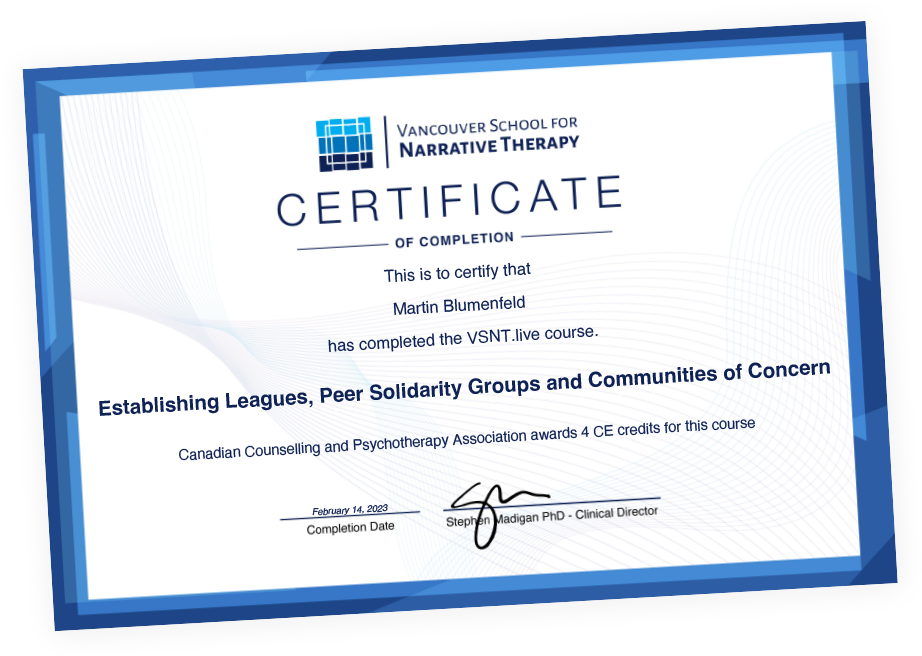
Therapists cannot understand narrative therapy unless they realize the beauty and intentions of its past

Watch and interact with the very best live therapy sessions, long play discussion series, and interviews.

Our narrative community of ideas, theory, and practice is growing & changing ~ and it's super exciting.
VSNT.Live courses offer easy & accessible continuing education credits with signed certificate after you complete each course.


The Vancouver School for Narrative Therapy (VSNT) is internationally recognized as the world’s most experienced narrative therapy training centre with the worlds most experienced training faculty. From our home base in Vancouver, BC, Canada VSNT has always been dedicated to teaching with integrity, creativity, politic, and purpose.
© Vancouver School for Narrative Therapy | Terms & Conditions